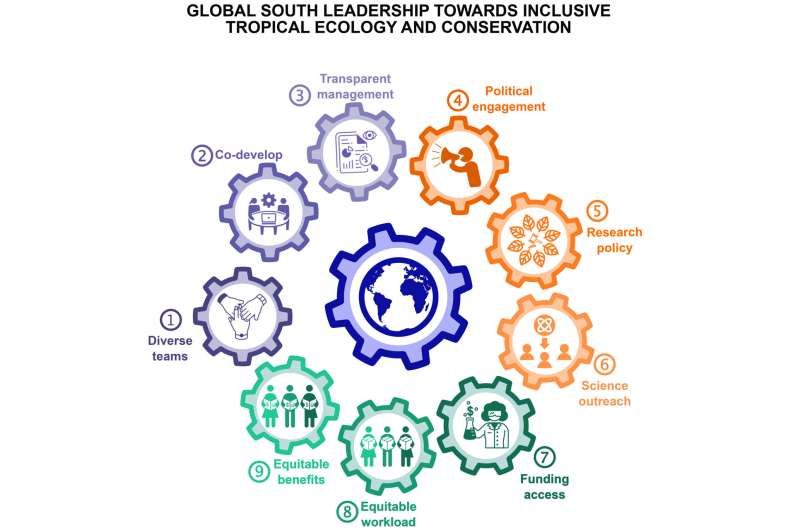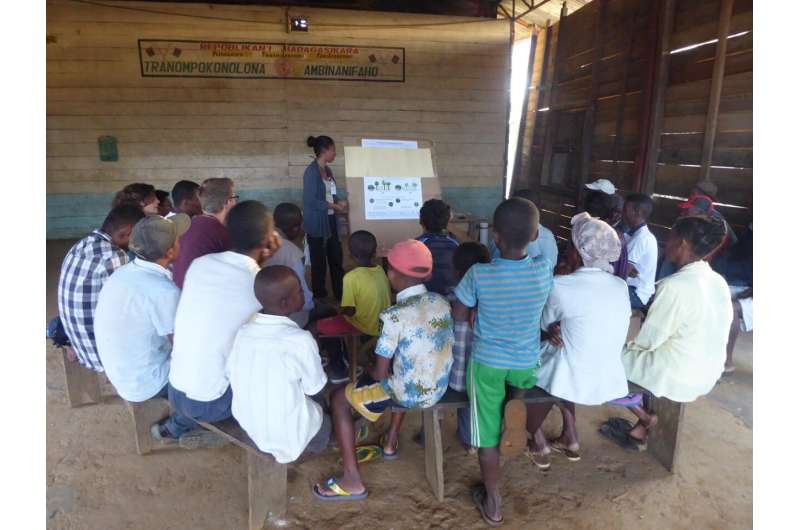This article has been reviewed according to Science X's editorial process and policies. Editors have highlighted the following attributes while ensuring the content's credibility:
fact-checked
trusted source
proofread
Strengthening ecology and conservation in the Global South

The tropics hold most of the planet's biodiversity. In order to preserve this fragile and valuable asset, many individuals and communities need to get involved and be well informed. However, tropical ecology and conservation sciences are still often affected by colonialistic and discriminatory practices, which can hamper nature conservation success.
An international research team from leading universities in tropical research, including the University of Göttingen, has now proposed how researchers from the Global South, which consists of nations historically damaged by colonialism, could better promote solutions for a sustainable development. The team's opinion paper was published in the journal Perspectives in Ecology and Conservation.
The team of researchers from over 12 countries—across South America, Africa, Asia, Europe and North America—gathered their experiences working in international collaborations in the field of terrestrial and marine tropical ecology and conservation, and participating in committees promoting the diversification of scientific societies.
They suggest ten actions for researchers living in the Global South to promote improvements in diversity, equity and inclusion. These include actions at institutional, national and international levels to guarantee that research teams in the Global South become more inclusive and diverse and are well prepared for equitable international research collaborations that have an impact on nature conservation practices.
The authors believe that current teams in tropical research often do not fully consider the vast diversity of people and perspectives in tropical regions, which hinders the implementation of scientific practices. However, they recognize the high initial costs associated with establishing schemes for equitable participation: "These actions require hard work and self-reflection from all of us about our actions and attitudes, but we are confident that the benefits are considerable, both for the quality of the science that we do, and the protection of tropical ecosystems," says lead author Carolina Ocampo-Ariza, Agroecology Group, University of Göttingen.

Successful conservation actions rely on the participation of local stakeholders, including local governments and communities in rural areas. "We hope to encourage more leadership from those that live surrounded by tropical biodiversity," says Professor Teja Tscharntke, University of Göttingen. This includes researchers in the Global South increasing outreach and dissemination in research projects, co-developing research goals with local stakeholders such as indigenous communities and local farmers, and taking a leading role in international research teams.
"The ongoing international discussions about diversity, equity and inclusion will hopefully help us establish more sustainable and fair collaborations in research," adds Isabelle Arimond, Functional Agrobiodiversity, University of Göttingen.
More information: Carolina Ocampo-Ariza et al, Global South leadership towards inclusive tropical ecology and conservation, Perspectives in Ecology and Conservation (2023). DOI: 10.1016/j.pecon.2023.01.002
Provided by University of Göttingen





















